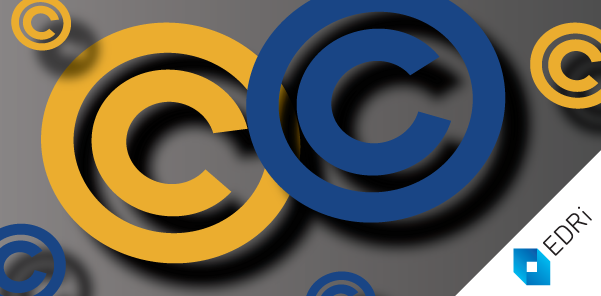ENDitorial: What do two copywrongs make? Definitely not a copyright
Anyone who turns up in Brussels these days and tries to follow discussions around the proposal for “ancillary copyright” (aka “link tax”) in the Copyright Directive must be truly baffled.
A court ruling imposing this approach failed in Belgium, hurting smaller publishers and everyone except Google. A similar law failed in Germany, hurting smaller publishers and everyone except Google. An even worse version of the policy failed even worse in Spain, hurting smaller publishers. Then, as part of its Copyright Directive, the Commission proposed an even worse version of it. Is this crazy? Or a plan so cunning that you could pin a tail on it and call it a fox?
Brussels politics is all about balance. It is all about fairness and compromise – or at least something that can be sold as fairness and compromise. So, the European Commission knows that if it proposes two awful proposals at the same time, European policy-makers would be unwilling to reject both measures. This is particularly the case when they have been ostensibly proposed to “protect European creators”. In the “consensus-driven” Brussels environment, to lose one measure might be regarded as misfortune, but to lose both could be portrayed as carelessness in the protection of Europe’s creators.
So, what else has the European Commission proposed? Well, Article 13 of the Copyright Directive and its explanatory recitals, in a total of about 600 words, also appears to want:
- to make internet hosting services directly liable for any copyright infringements of their customers;
- to make internet hosting services indirectly liable for any copyright infringements of their customers;
- to remove the liability protections provided for in the 2000 E-Commerce Directive (just for copyright);
- to require the conclusion of licensing agreements between web hosting companies and rightsholders;
- to require the installation of upload filtering and monitoring of almost all material uploaded to the internet in Europe;
- to invent a peculiar “pluristakeholder” discussion about how to filter users’ content that includes the hosting companies and rightsholders, but not internet users;
- to codify outlandish misinterpretations of the European Court of Justice (CJEU) rulings in the Scarlet/Sabam, Netlog/Sabam, Telekabel, and L’Oreal/eBay cases into European law;
- to invent a complaint mechanism for users whose information has been unfairly deleted by the hosting companies. This complaint mechanism would be set up and run by the same hosting companies. The mechanism would, in practice, be voluntary, as the companies could simply claim that content was deleted on the basis of terms of service rather than on the basis of the law.
The Article 13 proposals are, of course, much more difficult to delete, because it’s a tight tangle of numerous different proposals at the same time. Furthermore, it is designed to befuddle politicians, as it is hugely complicated to understand, but easy to sell as an “anti-Google” measure, despite the fact that it hurts pretty much everyone except Google.
Make no mistake about it, the European Commission both wants ancillary copyright AND the toxic Article 13 and that is what it is fighting for. However, the Commission’s “plan B” of going for a “balanced compromise” of losing one and keeping the other is as real as it is ridiculous.

Proposal for a Directive of the European Parliament and of the Council on copyright in the Digital Single Market (14.09.2016)
https://ec.europa.eu/digital-single-market/en/news/proposal-directive-european-parliament-and-council-copyright-digital-single-market
CJEU judgement: Telekabel/Constantin Film
http://curia.europa.eu/juris/document/document.jsf?text=&docid=149924&pageIndex=0&doclang=EN&mode=lst&dir=&occ=first&part=1&cid=165217
CJEU judgement: eBay/L’Oreal
http://curia.europa.eu/juris/document/document.jsf?text=&docid=107261&pageIndex=0&doclang=EN&mode=lst&dir=&occ=first&part=1&cid=165147
CJEU judgement: Netlog/Sabam
http://curia.europa.eu/juris/document/document.jsf?text=&docid=119512&pageIndex=0&doclang=EN&mode=lst&dir=&occ=first&part=1&cid=164867
CJEU judgement: Scarlet/Sabam
http://curia.europa.eu/juris/document/document.jsf?text=&docid=115202&pageIndex=0&doclang=EN&mode=lst&dir=&occ=first&part=1&cid=165057
E-Commerce Directive
http://ec.europa.eu/internal_market/e-commerce/directive/index_en.htm
EDRi: EU Copyright Directive – privatised censorship and filtering of free speech (10.11.2016)
https://edri.org/eu-copyright-directive-privatised-censorship-and-filtering-of-free-speech/
(Contribution by Joe McNamee, EDRi)


